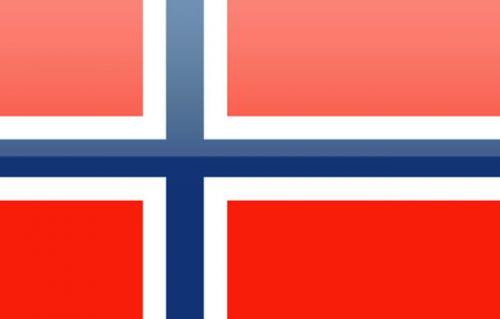
OSLO, May 10 (Xinhua) -- Norway, a leading maritime country at the northwestern corner of Eurasia, has expressed its support for the Belt and Road Initiative and expects to promote its ties with China within the framework.
"We are following with great interest the important Belt and Road Initiative and take pride in being a founding member of the Asian Infrastructure Investment Bank (AIIB)," Norwegian Minister of Trade and Industry Monica Maeland told Xinhua in a recent interview.
China and Norway are both world-leading maritime nations and share common interests in the maritime field, she added. "We both have comprehensive and knowledge-based maritime clusters."
"Green shipping and technology is one example of an area in which we believe we can develop closer collaboration and take advantage of our nations' maritime expertise," Maeland said.
Sturla Henriksen, CEO of the Norwegian Shipowners' Association, a trade and employment organization for Norwegian shipping and offshore companies, said the ambition underpinning the Belt and Road Initiative is impressive and the project can bring about a much-needed economic boost.
"Increased trade and investments globally is on the whole positive for international shipping -- which accounts for 90 percent of the world's trade," Henriksen said. "Improved infrastructure links between Asia and Europe is something we all stand to benefit from."
He said Norway's maritime companies could play an important role in the Belt and Road Initiative.
"Norwegian shipping companies are highly specialized and at the forefront of technological development and innovation. Our members also have unique know-how of offshore work," Henriksen said.
"I believe that if projects under the Belt and Road Initiative are made easily available for international companies to participate in, the scope for cooperation between the Norwegian maritime cluster and China is big," he added.
Utkilen AS, a shipping company with 18 chemical tankers based in Bergen seaport in southwestern Norway, said in February that it had entered into new contracts with AVIC Dingheng Shipbuilding Co. Ltd. in China for up to four advanced 9,900 deadweight tons (dwt) ice class chemical tankers with cargo tanks in duplex stainless steel.
In 2015, the company took over the Harbour Muran, an advanced chemical tanker with 16 cargo tanks made of stainless steel also built at the AVIC Dingheng shipyard in China.
"We have good co-operation with our Chinese partners and business connections," said Kjell Ove Breivik, CEO of Utkilen AS. "We chose Chinese shipbuilders because they are a reputable and high quality shipyard with a competitive cost level."
Arne Melchior, a senior researcher at Norwegian Institute of International Affairs (NUPI), said focusing on infrastructure and connectivity makes sense and the Belt and Road Initiative is therefore constructive.
"The Belt and Road Initiative might clearly have a positive impact in Eurasia," he added.
"The Belt and Road Initiative is clearly relevant to Norway through its participation in AIIB and also if it addresses e.g. the northern sea route to Asia, which can make East China and Northern Norway closer," Melchior said.
Maeland, the trade minister, also said that Norway is an open economy that is dependent on a well-functioning multilateral trading system.
"Norway will continue to work for an open world trade and new trade agreements. The Norwegian government is, therefore, looking forward to resuming negotiations on a free-trade agreement between Norway and China. A free-trade agreement will benefit both countries by increasing trade and investment," she said.
"We have strong interests in an open world trade with a level playing field. We do not get anything from protectionism," Maeland said.
Henriksen also voiced his opposition to protectionism in international trade and investment at a time when anti-globalization is on the rise around the world.
"I firmly believe that protectionism creates a lose-lose situation. We hope that the Belt and Road Initiative can become a model for how to create win-win projects in a globalized world," he said.




 A single purchase
A single purchase









